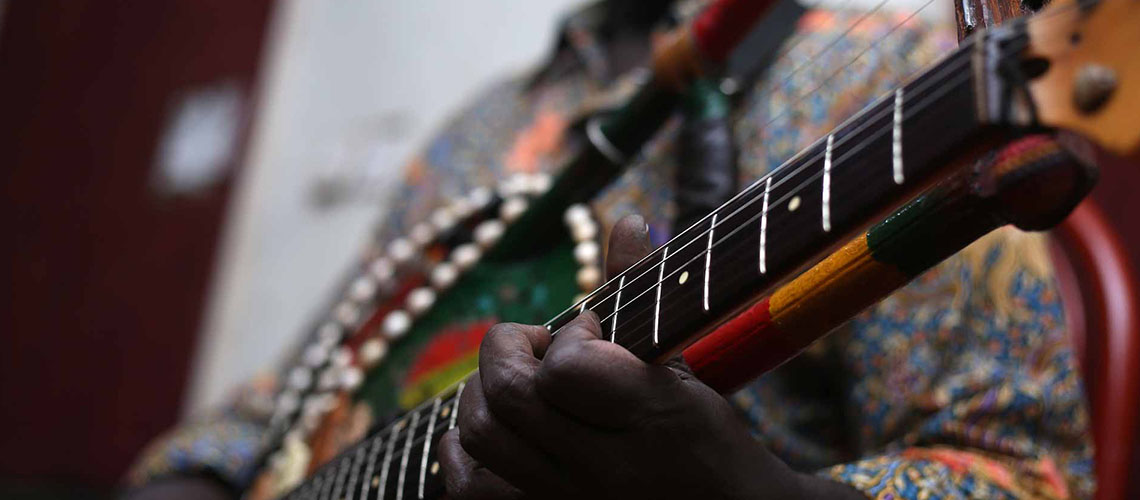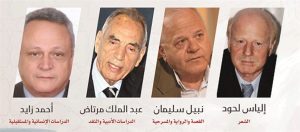Noureddine Jaber, a musician with a unique part-guitar, part-tamboura instrument, is giving voice to Sudan’s long-marginalised eastern communities through a new album.
Hailing from the Red Sea city of Port Sudan, Jaber belongs to the Beja people, a group of nomadic herders and breeders with unique languages, culture, food and music.
They have borne the weight of disenfranchisement especially under autocratic president Omar al-Bashir who was ousted in 2019.
But the title of his first album, due out later in June, conveys a different message: “Beja Power.”
Also known as “Noori”, Jaber grew up devouring the rich heritage of distinct tunes of the Beja people who trace their roots back millennia.
Though he first formed his band in 2006, it was only in recent months that he was able to record his first album, at the age of 47.
“Beja music is the window to the struggles of its people,” said Jaber, who called his six-member band “Dorpa”, which means “the band of the mountains” in Bedawit, a Beja language.
“The Beja have long been marginalised and we are trying to convey their voice through music.”
Though their region is a maritime trade hub known for its lush fertile fields, and rich gold mines, it is also one of the most impoverished parts of Sudan, itself one of the poorest countries in the world.
At a studio in Omdurman, the capital Khartoum’s twin city, Jaber leads his band through rehearsal, producing a mellow, toe-tapping sound somewhat similar to jazz.
“Let’s play the ‘Saagama’,” Jaber tells his bandmates: a bassist, saxophonist, rhythm guitarist, bongos player, and a conga drummer.
In his hand he holds his unique “tambo-guitar”, an instrument he fashioned from a guitar neck and his father’s vintage tamboura, a type of lyre played in East Africa.
Jaber’s invention is embossed with small shells and a map of Africa.
Sudan band’s music empowers sidelined ethnic group
www.sharjah24.ae




